
Ivor Novello was a Welsh actor, dramatist, singer and composer who became one of the most popular British entertainers of the first half of the 20th century.

Dorothy Dickson was an American-born, London-based theater actress and singer, and a centenarian.
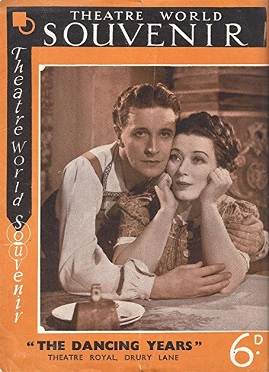
The Dancing Years is a musical with book and music by Ivor Novello and lyrics by Christopher Hassall, set in Vienna, from 1911 until 1938. It follows a Jewish composer and his love for two women of different social classes, with an ending set against the background of Nazi persecution.

Leontine Sagan was an Austrian-Hungarian theatre director and actress of Jewish descent. She is best known for directing Mädchen in Uniform (1931).

The Prince of Wales Theatre is a West End theatre in Coventry Street, near Leicester Square in London. It was established in 1884 and rebuilt in 1937, and extensively refurbished in 2004 by Sir Cameron Mackintosh, its current owner. The theatre should not be confused with the former Scala Theatre in London that was known as the Prince of Wales Royal Theatre or Prince of Wales's Theatre from 1865 until its demolition in 1903.

Christopher Vernon Hassall was an English actor, dramatist, librettist, lyricist and poet, who found his greatest fame in a memorable musical partnership with the actor and composer Ivor Novello after working together in the same touring company. He was also a noted biographer of Rupert Brooke and Edward Marsh.

Robert Tobias Andrews was a British stage and film actor. He is perhaps best known as the long-term companion of Ivor Novello.
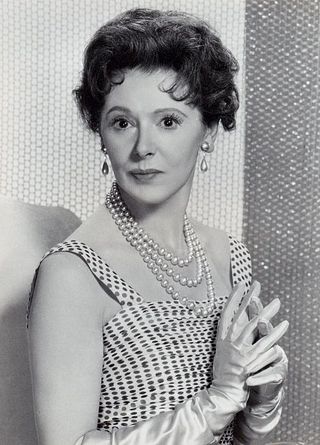
Isabel Jeans was an English stage and film actress known for her roles in several Alfred Hitchcock films and her portrayal of Aunt Alicia in the 1958 musical film Gigi.
Elizabeth Anne Seal is a British actress. In 1961, she won the Tony Award for Best Leading Actress in a Musical for her performance in the title role of Irma La Douce.

King's Rhapsody is a musical with book and music by Ivor Novello and lyrics by Christopher Hassall.
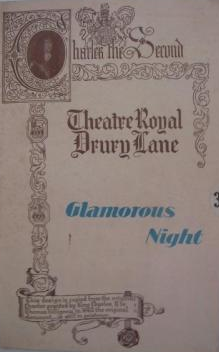
Glamorous Night is a musical with a book and music by Ivor Novello and lyrics by Christopher Hassall, Novello's collaborator in six of the eight Novello musicals staged between 1935 and 1951. Glamorous Night was the first of several hit Novello musicals in the 1930s given expensive, spectacular productions.
Olive Sarah Gilbert was a British singer and actress, who, in a career spanning seven decades, performed first in opera and then in many of Ivor Novello's musicals in London's West End.
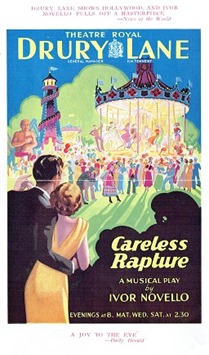
Careless Rapture is a 'musical play' by the Welsh composer Ivor Novello and lyrics by Christopher Hassall. It premiered on 11 September 1936 at the Theatre Royal, Drury Lane. It ran for 295 performances, a relatively modest success given Novello's other major successes.

We'll Gather Lilacs, also called We'll Gather Lilacs In The Spring, is a song by Welsh composer Ivor Novello which he wrote for the hit musical romance Perchance to Dream. The stage musical opened at the Hippodrome Theatre in London's West End in 1945 and ran until 1948. The song, sung in the show by Olive Gilbert, was the most popular and enduring to emerge from the production.
It was originally recorded by Muriel Barron & Olive Gilbert (1945) and by Geraldo and his Orchestra, who reached the UK charts with it in 1946. A recording by Tommy Dorsey and His Orchestra was a minor hit in the US in 1946. It has since been performed by many artists, including notably Anne Ziegler and Webster Booth, Richard Tauber, Bing Crosby, Frank Sinatra, Marion Grimaldi and Julie Andrews.
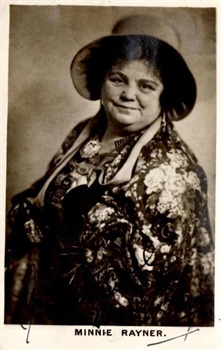
Minnie Rayner was a British stage and film actress.
Denis Martin was a Northern Irish singer, actor and theatre producer active in the 1940s to 1980s.
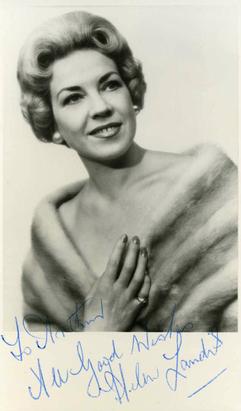
Helen Landis was an English singer and actress, known for her performances in musical theatre, operetta and opera, especially roles in early British productions of Rodgers and Hammerstein's and Ivor Novello's musicals and the contralto roles in the Savoy operas with the Gilbert and Sullivan for All company, with whom she toured extensively for more than 20 years.

Austen Hurgon was an actor, singer, theatre director and librettist for several successful Edwardian musical comedies of the 1900s and 1910s.

Arlette is a 1917 operetta in three acts by Austen Hurgon and George Arthurs with lyrics by Adrian Ross and Clifford Grey. Produced by George Grossmith Jr. and Edward Laurillard it was adapted from the French with music by Jane Vieu, Guy Le Feuvre and Ivor Novello. It opened at the Shaftesbury Theatre in London on 6 September 1917 where it ran for 260 performances. It starred Winifred Barnes, Joseph Coyne and Stanley Lupino.

Maidie Andrews was an English actress and singer who, with a career that spanned six decades, was a child actress and later a stage beauty who appeared in musical comedy including the original London productions of No, No, Nanette (1925) and Cavalcade (1931). The latter years of her career saw her taking roles in television and film.

















